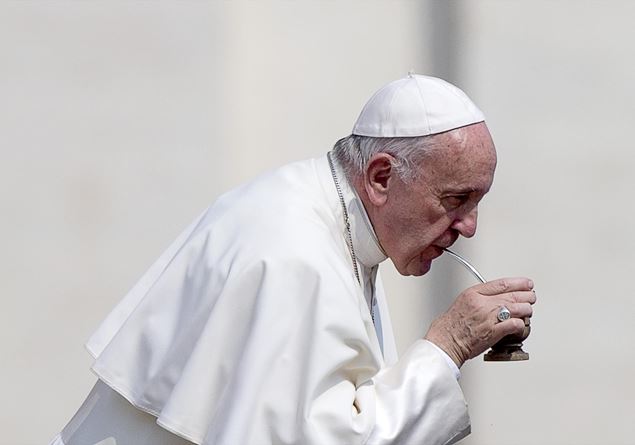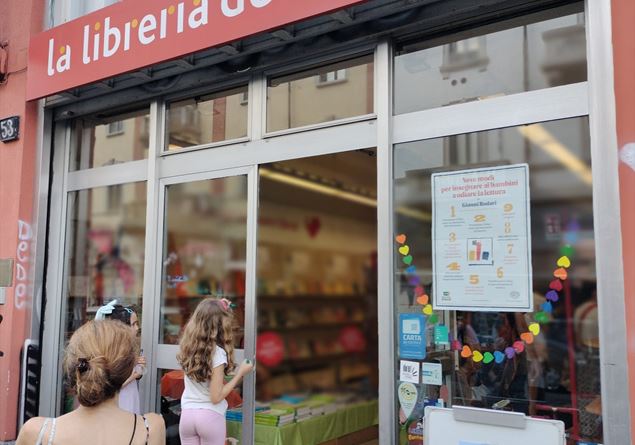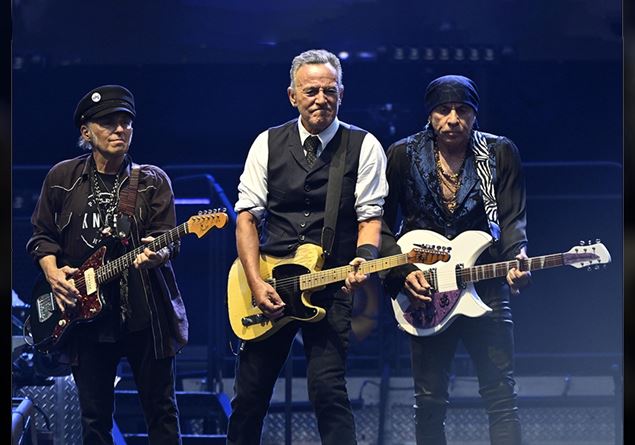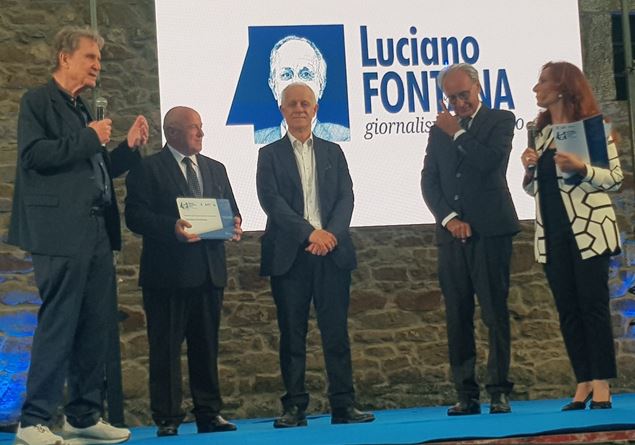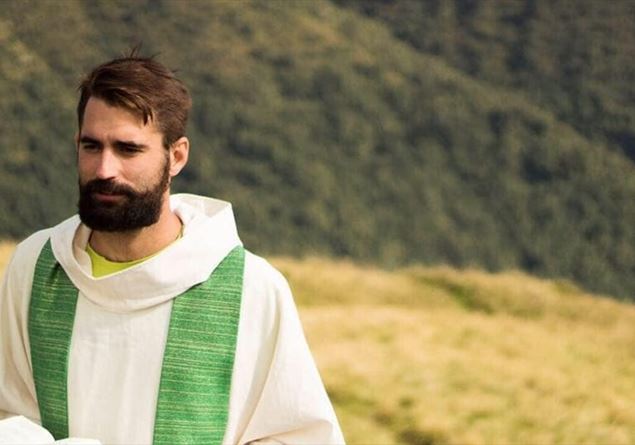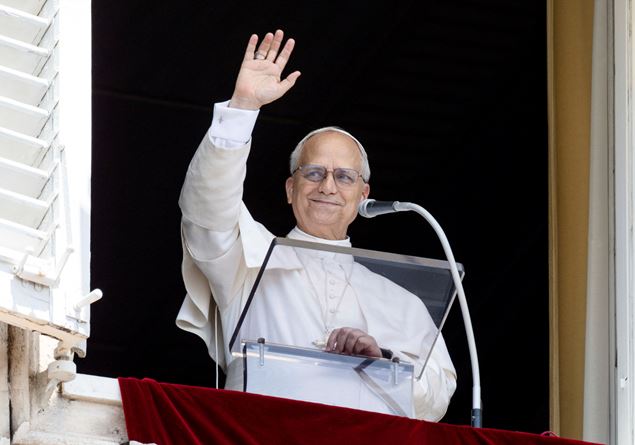Don Roberto Regoli.
In telling the figure of a pope, and all the more when he closed his earthly parable and returned to his father’s house, it is spontaneous to underline all the specificities that characterized his pontificate and his personality. Of Pope Francis we loudly remember attention to the poorest and most fragile and themes of the two jubilant years: that of mercy and that, in progress, of hope. However, if the gaze remains too concentrated on the years in question, there is the risk of losing sight of the most appropriate perspective to “reread” any pontificate: the one that includes it in the history of the Church, in which it is between a first and after. For a wider perspective, we interviewed the historian Don Roberto Regoli, full professor of the Faculty of History and Cultural Heritage of the Church at the Pontifical Gregorian University. “In these days,” explains Don Regoli, “many have spoken of exceptional, uniqueness and revolutionary strength of the pontificate of Francesco, sometimes trivializing it in the contents, as if it were an extraterrestrial or an extraecclesiastical. Making what is ancient to pass for new. Instead, it is appropriate to insert it into the history of the Church to understand its content better. Only in this way is it clear that Bergoglio has carried out instances of his ecclesial personal history: an Argentine and Latin America and Latin bishop. A bishop who had been at the center of the ecclesial choices of that continent, who wanted to look preferentially to the needs of the poor and to propose a missionary church within the ancient Catholic territories, but who are no longer. It should be remembered that it was a Jesuit and the company of Jesus in the time following the Council II II made the so -called preferential choice for the poor. Bergoglio is no coincidence, a miracle or an error in history, but the result of a path. Even of what is part of the pontificates who precede it ».
In particular, if we look at the twentieth century, we find fundamental themes that we see developing during different papacies. First of all, the theme of peace and strictly connected those of multilateralism and disarmament …
«Even from the outbreak of the First World War (1914-1918) all the Popes of the twentieth century have committed themselves to disarming the war, removing every possible claim of religious legitimacy. There is no holy war. Benedict XV defined the war a “useless massacre” and Pius XII declared that “nothing is lost with peace. Everything can be with war”. And in the same direction the successors went. It is important to remember John Paul II who started the prayer meetings of religions in Assisi in 1986 to make the world understand that religions are not the cause of wars, but a community for peace. In this sense, Benedict XVI will even declare that “non -violence for Christians is not a mere tactical behavior, but a way of being of the person, the attitude of those who are so convinced of the love of God and his power, which is not afraid of facing evil with the only weapons of love and truth”. And in this path not only does Pope Francis fit, but promotes him with the same conviction of his predecessors in the face of what he called with reason and success “third world war in pieces”. His diplomacy has privileged multilateralism, with an increasing commitment by the Vatican Secretariat of State, and a creative bilateralism as with the use of non -diplomatic cardinals for peaceful purposes. We think of Cardinal Ortega for mediation between the USA and Cuba and the Cardinal President of the CEI Zuppi for the war in Ukraine ».
International law in this historical phase seems increasingly threatened. Can it help to frame Pope Francis’ words and efforts in a wider context?
«On a diplomatic level Pope Francis included himself in the curial tradition he found. Like his predecessors, starting from Paul VI, he asked for respect for international law and the involvement of the UN. Both he, and his secretary of state, Cardinal Pietro Parolin, in the early years of the pontificate they entrust a darling role to the United Nations on the conditions and the lawfulness of military interventions, that is, on the use of force in order to form an interposition force that blocks violence, aggressions and fighting. The UN receives high consideration in the public speeches of the Pope and its cardinal secretary of state. The Holy See believes that international consensus must be requested to carry out strength actions. The UN, however, is blocked by crossed internal vetoes. Parolin himself lets himself go to a public recall in which he considers the UN an organization that fell in “apathy” and in “irresponsibility” and moreover “passive before the hostilities suffered by defenseless populations”. Faced with the great international crises, the Holy See refers to the UN authority, that is, it indicates a method, but not a solution. But that method has not brought fruit, because it was blocked in the crossed fire of vetoes. In the face of this situation, the papacy wanted to play some mediations on his own. The good offices placed by the Holy See should be reported in the process of normalization of the Cuban-Stanitual Bilateral Relations, broken after the Castrista Revolution, and which reached an agreement in 2014 “.
How would Francesco’s diplomacy define?
«During the pontificate of Francesco, a typical trait of his diplomacy emerges, according to which alongside the usual diplomatic channels, the Pope involves other characters, in cases known some cardinals, such as Ortega for Cuba and Zuppi for Ukraine, to activate a more personal and personalized diplomacy. However, these channels are brought back under the work of the Secretariat of State. It is known of other contexts in which the Pope and his diplomacy in our day are active to mediate in the wide sense, as in South-South and in the Congo, but of which there are no safe reports ».
The document on the human brotherhood of 2019, signed by Pope Francis and by the great imam of Al-Azhar, introduces us to interreligious dialogue and a long journey.
«Following the setting of John Paul II, interreligious dialogue is considered a prerequisite for achieving true and lasting peace. In a world threatened by the terrorism of a fundamentalist matrix at the beginning of the 21st century and by regional and international wars today, interreligious dialogue, such as the intercultural one, is presented as a real “vital necessity”. In this perspective, Francesco insists on what every man unites in the end: humanity itself. It is a secular language that wants to include every possible interlocutor. However, a language that wants to be religious in the name of the fact that every human being has been created in the image and likeness of God ».
Certainly the laudato was an important encyclical to understand the urgency to deal with the common house and above all to focus on natural systems and social systems are deeply interconnected. How to “place” this precious attention of Pope Francis in the history of the Church?
“The” Laudato yes “is a typical Document by Francesco. Undoubtedly from before there was this sensitivity. Think of the 2006 declaration between Benedict XVI and the patriarch of Constantinople Bartolomeo on common efforts for the conservation of moral values all over the world, for the protection of civil rights and freedoms, to resist war and terrorism and precisely to protect the environment from pollution. Having said that, however, it should be recognized that the ecological theme is one of Bergoglio’s most proper contributions, which has found important feedback in civil society. The elderly Bergoglio knew how to intercept an increasingly present sensitivity in the West. It will also be his inheritance. But it will be necessary to understand how it will be understood in a western world that is changing its policies green».
Then there is the “largest grace of the twentieth century” as St. John Paul II defined the Second Vatican Council. Helps us to trace the line that starts from the conciliar church and reaches Pope Francis?
«If a joke is allowed, I would like to manipulate a saying of the Pope. With Francesco we witnessed a Vatican Council III “in pieces”. He promoted himself of styles and sensitivity that launched ecclesial agendas that in previous decades lived mostly in small circles. Undoubtedly Bergoglio spoke of Vatican II, but at the same time – for his mentality – he preferred to look in other directions “.





